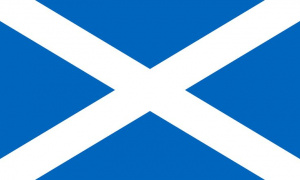Language/Scottish-gaelic/Vocabulary/Basic-Greetings
| Next Lesson — Introducing Yourself ▶️ |
In this lesson, you will learn some of the most common greetings used in Scottish Gaelic. Mastering these basic conversational phrases is essential to communicating effectively in Gaelic.
Hello and Goodbye
The most common way to say hello in Scottish Gaelic is "halò" (pronounced ha-loh). This greeting can be used at any time of day, whether you're seeing someone for the first time, greeting a friend or family member, or saying hello to a group of people.
The most common way to say goodbye is "tìoraidh" (pronounced tee-uh-ray). This greeting works for any time of day and can be used in most situations.
Other ways to say hello and goodbye in Scottish Gaelic include:
- "cuinichidh mi thu" (pronounced koo-ee-ni-kee voo hoo) - This phrase translates to "I will meet you" and is often used to say goodbye.
- "mar sin leibh" (pronounced mar shin layv) - This is more formal way of saying goodbye, similar to "goodbye" in English.
Good Morning, Good Afternoon, and Good Night
In Scottish Gaelic, there are different greetings for different times of day.
- "madainn mhath" (pronounced ma-tan vah) - This phrase is used to say "good morning" and is used from sunrise until noon.
- "feasgar math" (pronounced fesh-gar mah) - This phrase is used to say "good afternoon" and is used from noon until sunset.
- "oidhche mhath" (pronounced o-he va) - This phrase is used to say "good night" and is used when saying goodbye to someone at night or before bed.
How are you?
To ask someone how they are doing in Scottish Gaelic, you can say "ciamar a tha sibh?" (pronounced kya-mar a ha shiv). This phrase can be used in both formal and informal situations, and you can use "tha gu math, tapadh leat" (pronounced ha goo mah tah-puh let) to respond meaning "I'm well, thank you".
Here are some examples in a table format
| Scottish Gaelic | Pronunciation | English |
|---|---|---|
| halò | ha-loh | Hello |
| tìoraidh | tee-uh-ray | Goodbye |
| cuinichidh mi thu | koo-ee-ni-kee voo hoo | I will meet you |
| mar sin leibh | mar shin layv | Goodbye (formal) |
| madainn mhath | ma-tan vah | Good morning |
| feasgar math | fesh-gar mah | Good afternoon |
| oiche mhath | o-he va | Good night |
| ciamar a tha sibh? | kya-mar a ha shiv | How are you? |
| tha gu math, tapadh leat | ha goo mah tah-puh let | I'm well, thank you |
Now that you've got the basics down, keep practicing and incorporating these phrases into your conversations in Scottish Gaelic. Next, you will learn how to introduce yourself and ask someone's name in Scottish Gaelic, along with other basic conversational phrases.
Other Lessons
- City
- Days of the Week
- House
- Colors
- Vegetables
- Dates
- Modes of Transportation
- Introducing Yourself
- Sports
| Next Lesson — Introducing Yourself ▶️ |

